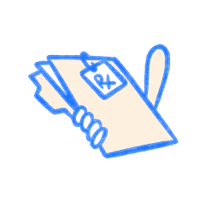What do nurses with the BCEN CFRN or BCEN CTRN certification do?
Let’s talk about the Certified Flight Registered Nurse first. Flight nurses are part of a larger medical team that gets patients to a care facility safely. The nurse’s main job is to keep the patient stable while in transport until the destination is reached. This type of nursing is common in both military and civilian situations.
Next is the Certified Transport Registered Nurse. There are a lot of functional similarities between these two specialties, but transport nurses are primarily working in ground transport settings rather than air transport. Another difference is that while CFRNs usually have more medical staff around them, CTRNs are often alone or part of a smaller team.
Explore our CFRN and CTRN Exam Preparation in our Nursing app to equip yourself for success in these specialties
Who takes these exams?
These are challenging certifications that require very specific knowledge of specialized situations. Think about it – something unexpected can happen while transporting a patient, maybe in a helicopter or ambulance. It makes sense to have laser-focused training that prepares nurses to know what to do in a small space like an ambulance or helicopter.
As a first step, many people take the CEN (Certified Emergency Nurse) as a building block for these exams. It gives nurses a great foundation of critical knowledge and skills that are important to both the CFRN and CTRN certifications.
What do these tests cover?
There are a total of 130 scored questions and 25 pretest questions on the BCEN CFRN exam. The BCEN CTRN exam consists of 150 scored questions and 30 pretest questions. You get 180 minutes (3 hours) to take either exam.
The outline is the same for both exams and covers the following topics:
General principles of transport nursing practice
Transport physiology, safety & survival, professional issues, scene operations, ELT, pre-mission preparation
Number of Questions: CTRN – 19, CFRN – 31
Resuscitation principles
Airway management, principles of assessment and patient prep, mechanical ventilation, perfusion
Number of Questions: CTRN – 27, CFRN – 31
Trauma
Principles of management, neurologic, thoracic, abdominal, orthopedic, burn, maxillofacial & neck
Number of Questions: CTRN – 26, CFRN – 31
Medical emergencies
Neurologic, cardiovascular, pulmonary, abdominal, metabolic, renal, shock, environmental emergencies
Number of Questions: CTRN – 44, CFRN – 44
Special populations
Obstetrical patients, pediatric, geriatric, bariatric
Number of Questions: CTRN – 14, CFRN – 13
These are example topics. You can learn more about the exam from BCEN’s Combined CFRN and CTRN Detailed Content Outline.
What do I need to be eligible for these certifications?
For both the CFRN and CTRN, candidates must be a Registered Nurse with a current, unrestricted license. Nursing certifications equivalent to a Registered Nurse in the US are also accepted. BCEN recommends two years of experience in ground or flight transport depending on which exam you want to take. It’s not required but will definitely be helpful.
Here are some sample skills from CFRN and CTRN job descriptions:
- 5+ years of experience in ICU/ED/Trauma
- Ability to work autonomously in a confined space with other team members
- Ability to work in a high-stress environment
- Advanced critical care knowledge including ventilator experience
- Ability to lift or move objects over 80lbs
- Ability to work varied shifts including overtime and 24/7 on-call rotation
- Flight experience preferred (for CFRN)
- Strong computer skills and ability to use electronic health record/documentation effectively
- Strong clinical, critical thinking, and decision-making skill
Anything else I need to know about getting certified?
In 2019, the CFRN had about a 58% pass rate. Unfortunately, there isn’t current pass rate data available for the CTRN, but it would be fair to estimate that the pass rate for this exam is likely similar to the CFRN of roughly around 60%. These certifications put you in a highly specialized nursing group that is usually dealing with trauma and emergency care situations.
Nurses with these certifications possess high-octane skills and are incredibly crucial in the medical profession. A combination of proper work experience, drive, and study prep can help put you in that passing group. We’re here to help.
How do I get started?
One great way to get started is with practice questions for the CTRN and CFRN. Pocket Prep’s combined CFRN & CTRN study prep features 500 practice questions and multiple study modes designed to help studyers pinpoint their weak spots and get practice in where they need it most.

